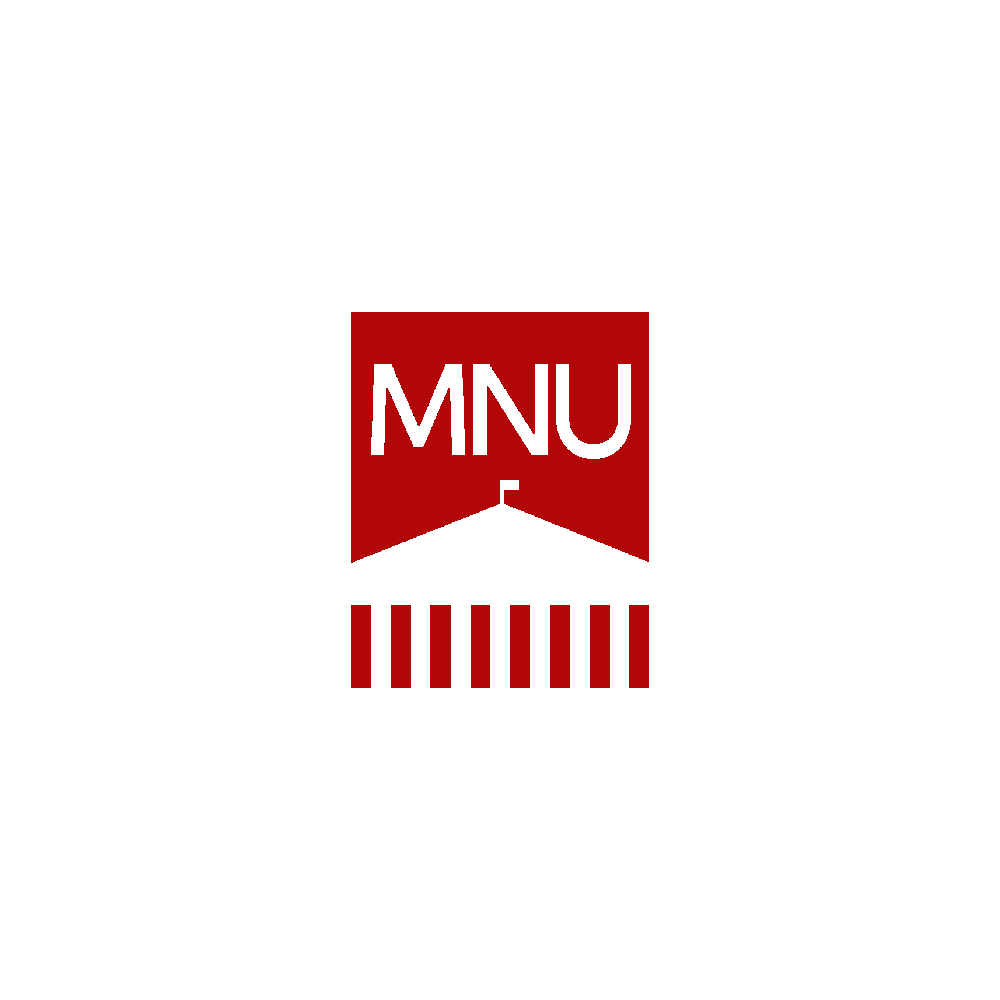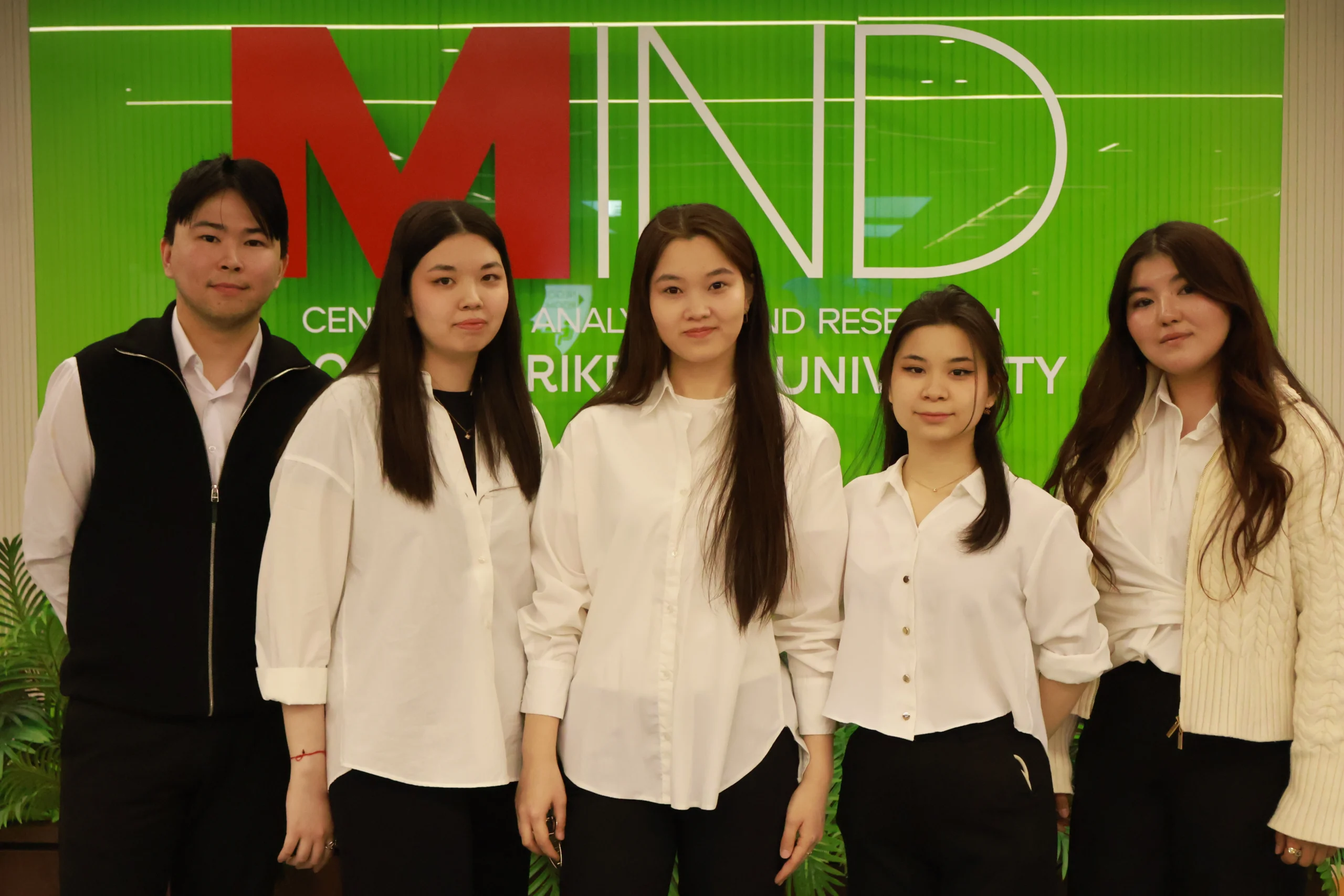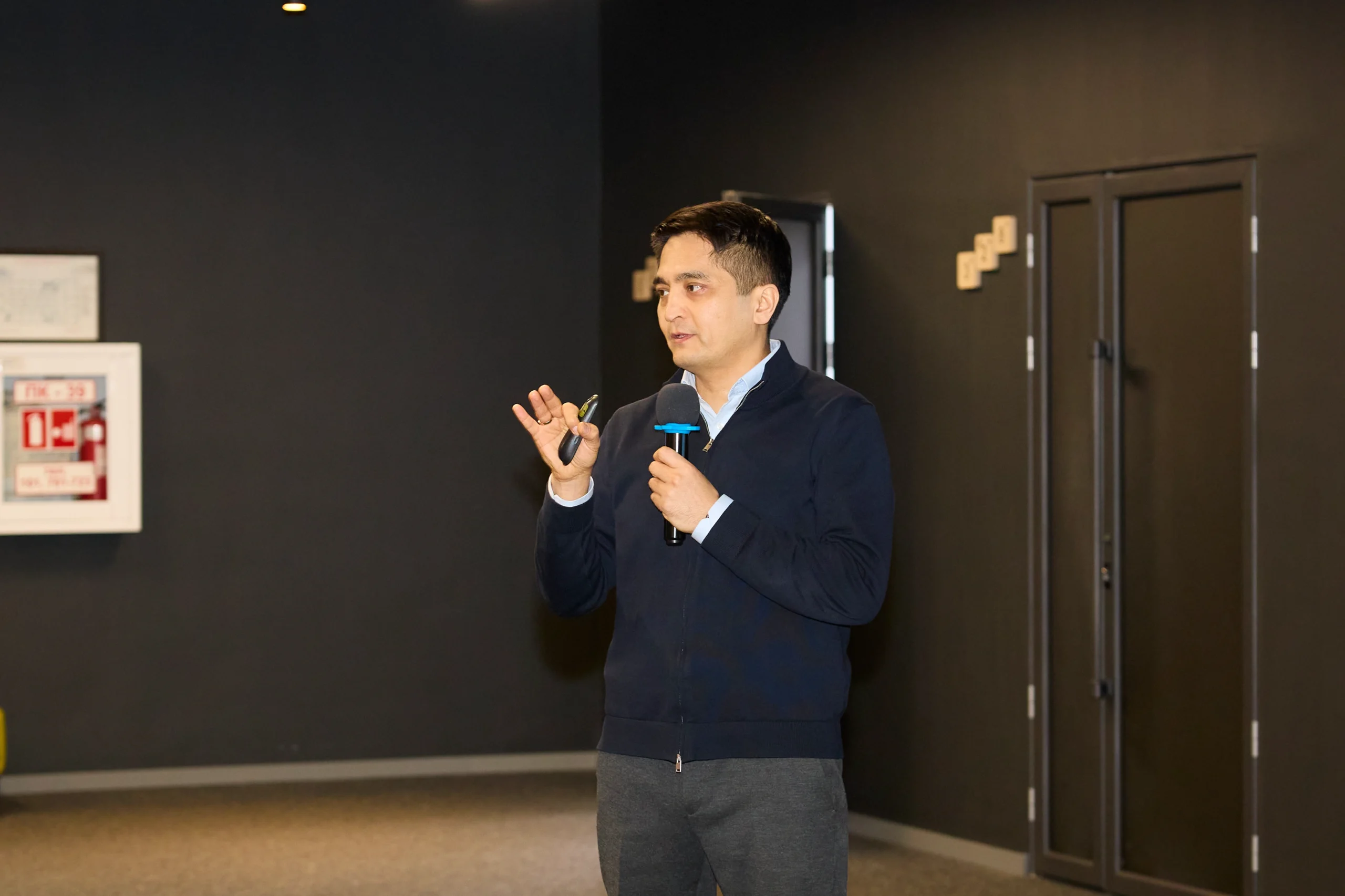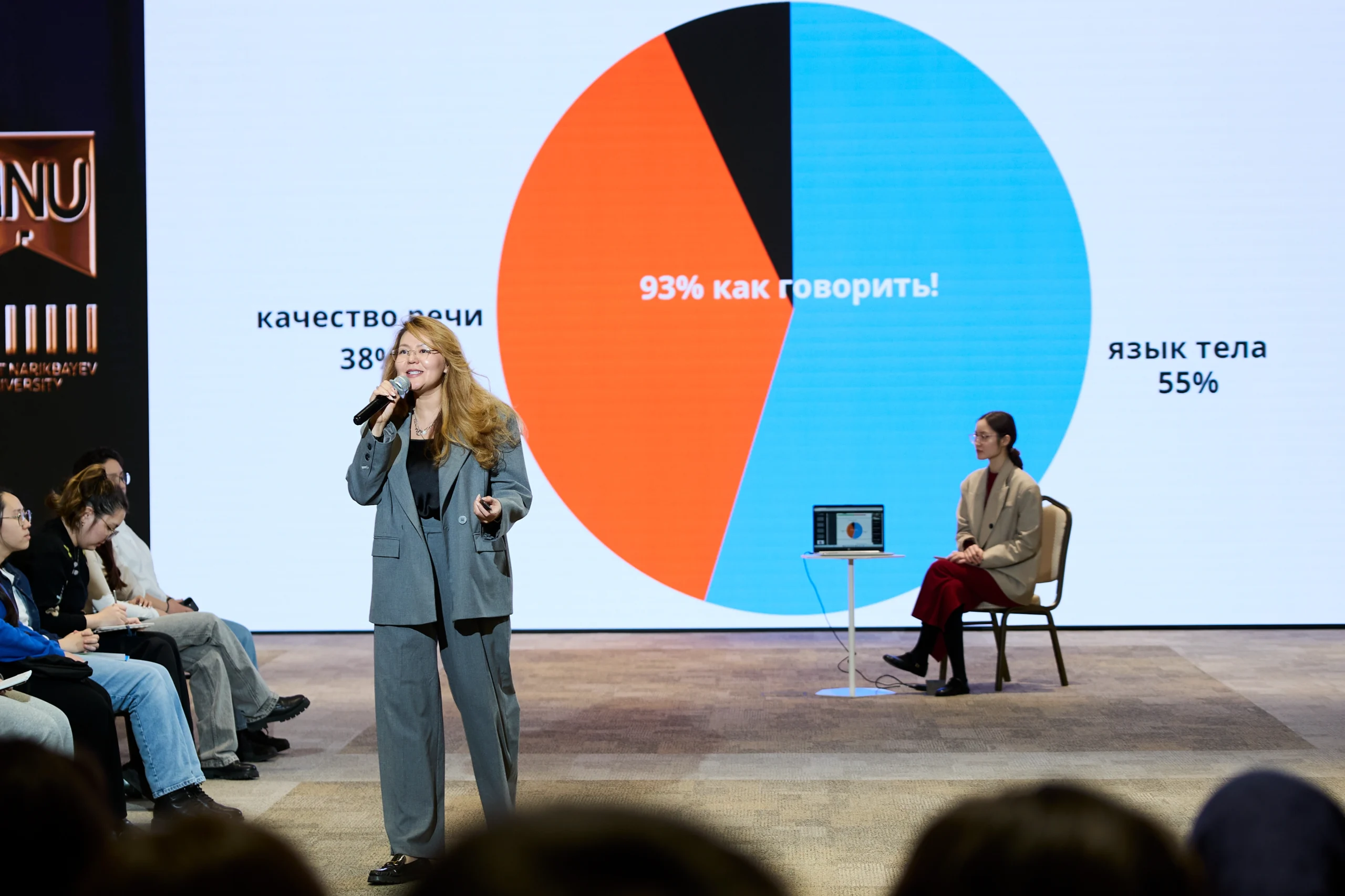The School of Liberal Arts hosted an offline intensive workshop on Academic Writing led by Madina Abdrakhmanova, an experienced researcher and writing instructor. The event was open to all interested participants — both from Maqsut Narikbayev University and beyond, attracting young professionals, aspiring researchers, and motivated youth eager to strengthen their writing skills for academic and professional purposes.
The workshop focused on three key areas:
1. Text Structure and Coherence – Participants learned to design effective introductions, develop logical argumentation, and ensure cohesion across sections of their papers.
2. Working with Sources – The speaker guided attendees through techniques of paraphrasing, integrating citations, and building literature-based arguments.
3. Citation Ethics and Plagiarism Prevention – Through examples and discussion, the session highlighted ethical standards and institutional requirements for academic integrity.
Program Outline
- Opening Remarks and Introduction (10:00–10:15) Overview of workshop objectives and the significance of academic writing for professional growth.
- Session 1: Structuring Academic Texts (10:15–11:15) Interactive lecture and practical exercises on building argument flow and paragraph unity.
- Coffee Break (11:15–11:30)
- Session 2: Using and Citing Sources Effectively (11:30–12:30) Group tasks on paraphrasing, synthesizing sources, and formatting references in APA style.
- Lunch Break (12:30–13:30)
- Session 3: Case Reviews and Draft Consultations (13:30–15:00) Participants shared personal writing samples and received individualized feedback from the speaker.
- Session 4: Developing a Personal Writing Checklist (15:00–15:30) Attendees created improvement plans and identified strategies for developing publishable texts.
- Wrap-up and Certificate Ceremony (15:30–16:00) Summary of workshop outcomes, feedback collection, and distribution of participation certificates.
Outcomes
Participants developed draft article outlines, received personalized recommendations, and left with a practical self-assessment checklist for further improvement. The workshop fostered a supportive learning environment, encouraging youth and early-career researchers to view academic writing as an essential professional skill and tool for communication in the global research community.
Next Steps
Building on the success of this event, the School of Liberal Arts plans to:
- Compile a pool of exemplary works to serve as models for future writers;
- Organize regular consultation hours for those preparing research papers and publications;
- Launch a Writing Support Series, connecting participants with academic mentors and editors.
SDG Connection: The initiative contributes to SDG 4 – Quality Education, advancing academic literacy, ethical research practices, and inclusive access to quality learning opportunities.






